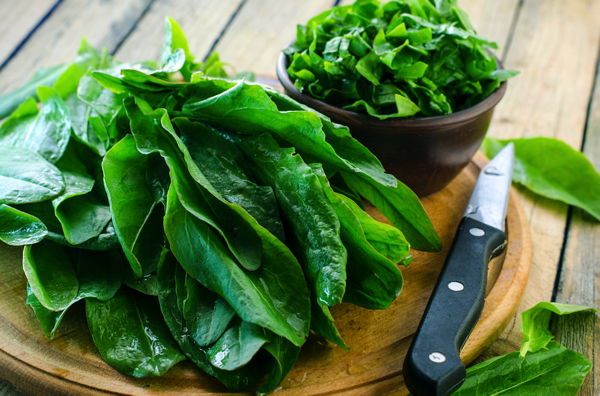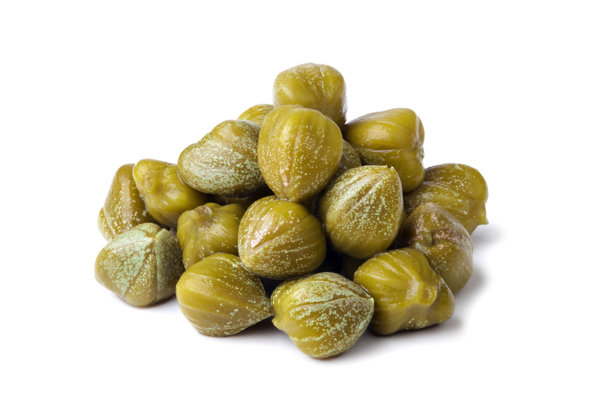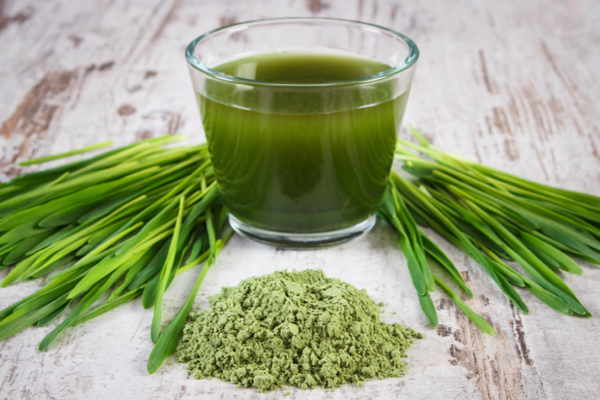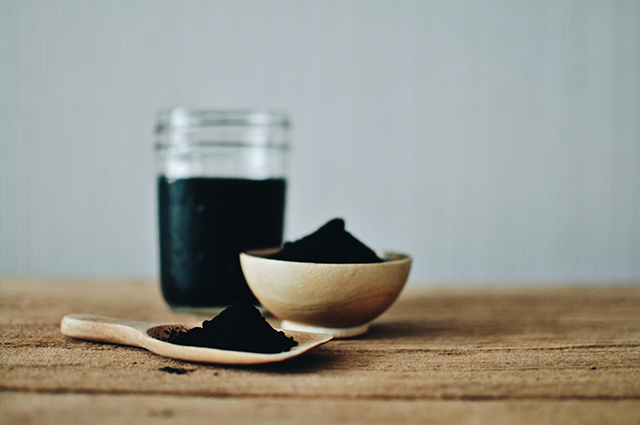Health benefits of sorrel leaves: An ancient remedy backed by modern science
12/06/2024 / By Olivia Cook

Imagine a single herb that can boost energy, enhance digestion, help prevent cancer, strengthen bone and support immune system health. It may sound too good to be true, but sorrel leaves deliver on all these fronts and more.
Revered in traditional medicine and increasingly studied in modern science, sorrel is a nutritional powerhouse with therapeutic properties that address a wide range of health concerns.
Helps boost energy
Sorrel’s nutrient-rich profile, including vitamins A and C, as well as minerals, such as calcium, iron, magnesium and potassium, may contribute to better oxygen delivery in the body. This can help reduce fatigue and support energy levels, making it a natural addition to combat daily exhaustion.
Helps detoxify your body
Sorrel is celebrated for its natural detoxifying properties, primarily due to its rich antioxidant content and diuretic properties. These attributes may assist the body in flushing out toxins, thereby supporting liver and kidney health and reducing bloating.
Vitamin C enhances its cleansing by promoting the removal of harmful substances from the body. Sorrel’s flavonoids and protocatechuic acid further contribute to its detoxifying power – acting as natural purgatives to aid in the elimination of toxins.
Supports digestive health
The high fiber content in all varieties of sorrel helps promote regular bowel movements by adding bulk to stool and facilitating smooth passage through the digestive tract. This can alleviate common gastrointestinal issues, such as bloating, constipation, cramping and indigestion.
Additionally, sorrel’s natural acids stimulate bile production, which plays a role in the breakdown and digestion of fats. This supports efficient digestion and enhances overall gut health by encouraging the growth of beneficial bacteria in the intestines. Whether enjoyed as a fresh herb or in tea, sorrel can be a valuable ally for maintaining a healthy, balanced digestive system.
Helps heal wounds
Used traditionally as a poultice, sorrel’s anti-inflammatory and antiseptic properties may help clean wounds and reduce the risk of infection. This makes it a natural option for boils, minor cuts and ulcers.
Helps manage weight
Low in calories and high in fiber, sorrel can be a valuable addition to a weight-conscious diet. Its nutrients support digestion and its diuretic properties may help reduce water retention.
Supports renal health
Sorrel’s diuretic qualities may promote the elimination of excess fluids and toxins through urination. This can support kidney health and may help prevent the formation of kidney stones when paired with a balanced diet and a healthy lifestyle.
Helps manage lactation
Traditionally, sorrel has been used to manage milk production during the weaning process. While generally safe, those considering its use during lactation should consult their doctor or a healthcare professional to ensure it meets their needs.
Helps treat gonorrhea, hemorrhages and UTIs
Sorrel’s antimicrobial and diuretic properties have been traditionally valued for managing urinary tract infections (UTIs). It has also been used in folk medicine for conditions, such as gonorrhea and to help control excessive bleeding.
Supports eye health
Sorrel’s high vitamin A content and carotenoids make it a valuable addition to a diet focused on eye health. These nutrients help protect the retina, reduce cataract risk and delay age-related macular degeneration (AMD). Beta-carotene, a precursor to vitamin A, is a powerful antioxidant that supports night vision and prevents oxidative stress-related damage to the eyes. Studies have shown that vitamin A from green leafy vegetables like sorrel can play a crucial role in maintaining clear vision.
Helps lower blood pressure
The potassium found in sorrel is a key nutrient for maintaining healthy blood pressure levels. As a natural vasodilator, potassium relaxes blood vessels and improves circulation – reducing strain on the cardiovascular system. This helps to lower blood pressure and reduce the risk of hypertension, coronary artery disease and strokes. Additionally, the antioxidants in sorrel contribute to heart health by combating bad cholesterol and inflammation – further supporting overall cardiovascular well-being.
Supports hair health
The antioxidants and vitamins in sorrel can nourish the scalp, strengthen hair follicles and help prevent dandruff. Its use in hair treatments may improve shine, protect hair from environmental stressors and repair damage.
Helps prevent iron deficiency and anemia
Sorrel’s iron content – nearly 2.5 mg per 100 grams – makes it a nutrient-dense option for addressing anemia and boosting red blood cell production. Iron is essential for transporting oxygen throughout the body and is vital in energy production, healing and overall vitality.
When combined with vitamin C-rich foods, sorrel enhances iron absorption – increasing its efficacy in preventing fatigue and other symptoms associated with iron deficiency. This natural synergy makes sorrel and excellent dietary addition for improving blood health and energy levels.
Helps prevent scurvy
As a rich source of vitamin C, sorrel has been traditionally used to prevent scurvy. Consuming it regularly may strengthen immunity and promote collagen production, which is vital for healthy skin and tissue repair.
Helps protect against tumors and cancers
Rich in antioxidants like polyphenols, including flavonoids, sorrel offers potential protective benefits against abnormal cell growth. These compounds help neutralize harmful free radicals that contribute to oxidative stress – a key factor in the development of certain cancers.
Test tube and animal studies have shown that sorrel extracts may inhibit the growth of breast, cervical and skin cancer cells. While these findings are promising, more human research is needed to confirm sorrel’s role in cancer prevention.
Supports bone health
With its calcium and magnesium content, sorrel can support bone density and strength. These nutrients may be particularly beneficial in reducing the risk of age-related bone weakening, especially for women.
Helps reduce cold sores and fever blisters
Sorrel’s antiviral and soothing properties may relieve cold sores and fever blisters. Its compounds may help reduce inflammation and support quicker healing as a natural remedy.
Helps soothe and heal the skin
Its natural anti-inflammatory and antimicrobial properties make it a traditional remedy for issues like acne, eczema and fungal infections, such as ringworm. When applied as a face mask or poultice, sorrel can reduce redness, soothe irritation and promote a smoother complexion.
Rich in vitamins A and C, sorrel helps clear the skin, combats itchiness and supports the healing of rashes and other irritations. Topical application of liquid extracts made from ground sorrel leaves can alleviate conditions like allergic reactions and sunburn.
Additionally, sorrel’s bioactive compounds – anthraquinones, flavonoids and naphthalene – enhance its ability to relieve insect bites, reduce inflammation and treat wounds.
Helps strengthen immunity
Rich in vitamin C and antioxidants, sorrel may help enhance the body’s natural defenses by promoting white blood cell activity. Regular consumption might offer support against seasonal colds and environmental stressors.
Supports better sleep
Sorrel’s calming properties may promote relaxation, potentially making it a helpful addition for those struggling with stress-induced insomnia. Its ability to reduce blood pressure may also encourage better sleep quality.
By rediscovering sorrel leaves, you embrace an age-old remedy backed by science and tradition. It’s time to make this small but mighty herb a part of your wellness journey.
Watch this video about the herbal medicine benefits of sorrel.
This video is from the Holistic Herbalist channel on Brighteon.com.
More related stories:
Nutritious weeds: Sorrel is a common perennial herb that offers benefits for respiratory health.
Powerful, inexpensive nutrition at home: Microgreens are easy to grow.
Foraging 101: Best US states to forage for food after SHTF.
Sources include:
Submit a correction >>
Tagged Under:
alternative medicine, anemia, antioxidant, Bible herbs, food cures, food is medicine, food science, functional food, health science, herbal medicine, natural cures, natural health, natural medicine, natural remedies, organics, Preventive Medicine, scurvy, sorrel, sorrel leaves, tumors, veggie
This article may contain statements that reflect the opinion of the author
RECENT NEWS & ARTICLES
COPYRIGHT © 2017 DETOX NEWS




















